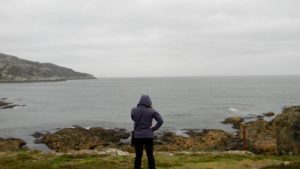Off the Grid Travel: No Phones, No Social Media, No Safety?
Last month, Times Square in New York City surpassed the Eiffel Tower as the most Instagrammed tourist attraction in the world. Over 62 million photos have been tagged at Times Square. We live in a world of constant connectivity and updates, where travelers are seemingly sharing every minute of their travel.
While vacationers are Facebooking each airport check-in, subtweeting overheard coffee shop conversations, and seemingly Instagramming each new sidewalk they find, there is also an evolving trend encouraging travellers to disconnect themselves completely; travel off the grid. Off the grid means leaving your phones, computers, and tablets at home in an attempt to ‘enjoy the moment’ without the worry of text messages, emails, the number of likes and video plays. Although the idea of being completely disconnected and unreachable might sound intriguing, relaxing and perhaps a little rebellious, it begs the question of travel safety.
Case in point: I spent three weeks ‘off the grid’ backpacking through Europe in 2011. I left Canada with a backpack, passport, emergency VISA Card and about six pairs of shoes; no laptop, no phone, no immediate way of contacting anyone in case of a crisis or emergency, and perhaps, more importantly, no plan in case of a travel crisis.
I stepped off the train in Rome, Italy, completely disoriented and jet-lagged with a hostel address scratched into my notepad. Luckily, I was travelling with a friend who had a bit more sense of direction than I, and the two of us were able to stumble our way through the side streets of Rome to find our first hostel. From there, we bounced from country to country, walked across cities to the biggest tourist attractions at every hour of the day and strolled back to our hostels after night caps, without a care in the world or an understanding of what to do if something went wrong.
Three weeks later, I arrived back at Pearson International Airport completely unharmed, wide-eyed and happier than ever. However, to this day, when I think back on my trip to Europe, I cannot help but think of how foolish travelling like that was. What if something happened, as innocent as getting off the train at the wrong stop during an overnight trip to Paris? What if I was mugged walking back to the hostel in London and my emergency VISA and passport were gone? What if I got sick in Verona, who would be able to help me translate my allergies in Italian, or what if I broke my ankle climbing the coastal cliffs in Holyhead, Wales? These are all realistic situations that could have happened, and if they did, I would have been completely lost trying to find the proper in-country response and support!
So while the travel trend of completely disconnecting may sound like a retreat, the truth is, having a safe travel plan inclusive of a crisis response plan is a necessity in today’s world.

South Stack Cliffs – Holyhead, Wales

